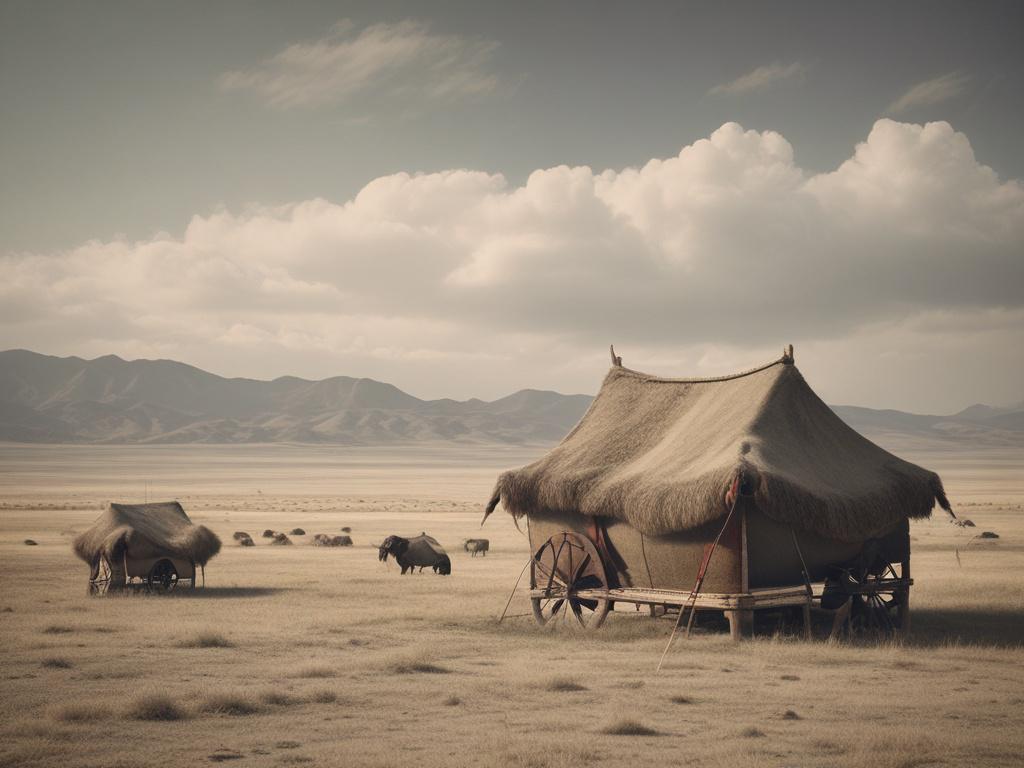

Southern Mongolia, a region steeped in captivating history and vibrant culture, has long been a crossroads of tradition and change. For centuries, this area has been inhabited by the Mongols, whose rich heritage is intertwined with the land’s vast landscapes and nomadic lifestyle. As it stands at the intersection of Chinese governance and indigenous customs, Southern Mongolia presents a unique narrative that reflects both resilience and adaptation. In this blog post, we aim to explore the rich history of Southern Mongolia and delve into the ongoing struggle for identity and rights faced by its people.
The preservation of cultural identity in Southern Mongolia remains an urgent issue as globalization and political pressures continue to shape the region. The Mongolian community grapples with the challenge of maintaining their unique customs, language, and way of life amid external influences. As we delve deeper into the ongoing struggle for rights and recognition, it becomes clear that understanding this rich history is crucial in navigating the path forward. Join us as we examine the complexities of Southern Mongolia's identity, the impact of historical events, and the hopeful aspirations for a future where cultural heritage and rights are upheld.
A rich heritage: Exploring the history of Southern Mongolia
Southern Mongolia boasts a rich heritage that dates back thousands of years, shaped by its unique geographical landscape, diverse cultures, and historical events. The region, part of Inner Mongolia Autonomous Region in China, has been home to various nomadic tribes and pastoral societies, each contributing to the vibrant cultural tapestry of the area. From the ancient Xiongnu Empire that thrived around the third century BCE to the Mongol Empire, which united vast territories in the 13th century under Genghis Khan, Southern Mongolia has long played a critical role in the historical narrative of East Asia. Archaeological discoveries, ancient texts, and oral traditions continue to illuminate its past, revealing a society deeply connected to its nomadic roots and the natural environment.
Throughout the centuries, Southern Mongolia has faced numerous challenges that have impacted its cultural landscape. The Qing Dynasty and, later, the establishment of the People's Republic of China significantly influenced the region's politics and governance. Despite these external pressures, the people of Southern Mongolia have retained their distinct identity, characterized by unique customs, language, and traditions. Today, researchers and historians work tirelessly to explore and preserve this rich history, fostering a deeper understanding of the enduring connection between the land and its people. Explore the rich history of Southern Mongolia, and you will discover a region that continues to resonate with the echoes of its past while grappling with the complexities of modern existence.
Cultural identity: The ongoing struggle for rights in Southern Mongolia
The struggle for cultural identity in Southern Mongolia has deep historical roots. For centuries, the region has been home to ethnic Mongols who have worked tirelessly to preserve their customs, language, and traditions despite external pressures. Throughout the 20th century, various political changes, including the rise of communist regimes, attempted to suppress the unique cultural identity of the Southern Mongolian people. These governments implemented policies that marginalized the Mongolian language and limited the teaching of Mongolian history in schools, fostering a sense of disconnection from their heritage. As a result, a collective consciousness emerged, pushing the Southern Mongolian people to resist assimilation and fortify their cultural self-identity.
In recent years, the desire for rights and recognition has intensified among Southern Mongolia’s population. Grassroots movements have sprung up, advocating for the preservation of the Mongolian language, the protection of traditional nomadic lifestyles, and the acknowledgment of land rights. Activists have faced increasing repression, yet their determination prevails. Cultural performances, festivals, and educational initiatives serve as powerful tools for revitalizing the Mongolian identity and uniting the community. The ongoing struggle exemplifies a profound yearning to reclaim their heritage and assert their rights against a backdrop of external pressures, thus redefining what it means to be Southern Mongolian in a rapidly changing world.
The road ahead: Navigating the future of Southern Mongolia’s identity and rights
As Southern Mongolia faces the challenges of modernity and globalization, the importance of cultural preservation becomes increasingly crucial. Local leaders, activists, and scholars tirelessly advocate for the recognition of Southern Mongolian rights, blending traditional practices with strategic political engagement. By fostering a strong sense of community and creating platforms for dialogue, these advocates work to ensure that the rich heritage of Southern Mongolia remains vibrant, even amid external pressures. Efforts to promote the region's unique cultural identity through education, art, and public discourse gain momentum, empowering younger generations to understand and embrace their historical roots.
Moreover, the international community plays a vital role in shaping the future landscape of Southern Mongolia. Global awareness and support can amplify local voices, urging policymakers to recognize the need for equitable treatment and respect for cultural rights. By encouraging meaningful partnerships between Southern Mongolian communities and international organizations, a more inclusive dialogue can emerge, fostering an environment that prioritizes rights and identity. The future of Southern Mongolia hinges on collective action, where tradition and progress intertwine to create a resilient identity that honors the past while forging a path toward a just and equitable future.